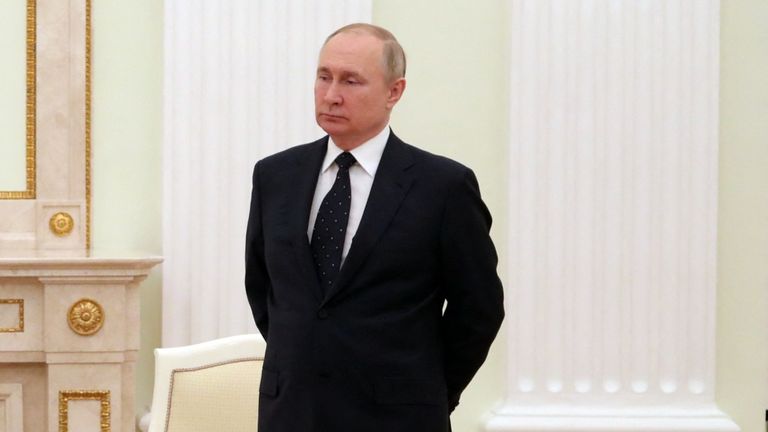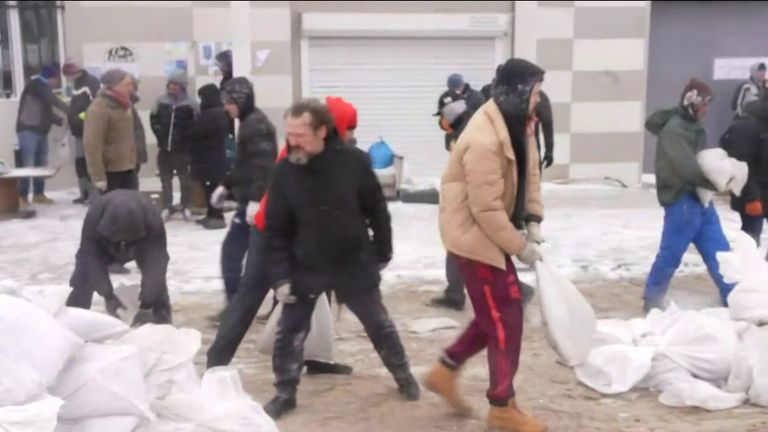100% Original Items
Official licensed products only
Satisfaction Guarantee
No replica, No copy items
Secure Payment
Powered by Paypal & Stripe
Same Day Dispatch
All orders placed before 2PM
Official licensed products only
No replica, No copy items
Powered by Paypal & Stripe
All orders placed before 2PM
Official licensed products only
No replica, No copy items
Powered by Paypal & Stripe
All orders placed before 2PM
Official licensed products only
No replica, No copy items
Powered by Paypal & Stripe
All orders placed before 2PM
Official licensed products only
No replica, No copy items
Powered by Paypal & Stripe
All orders placed before 2PM
Russia is moving to label the social media giant Meta an “extremist organisation” after the company said it would temporarily allow people to post calls for Vladimir Putin’s death.
The country’s prosecutor general has also requested that communications regulator Roskomnadzor restrict access to Instagram, following its blocks against Facebook and Twitter last week.
It is the latest clampdown on access to foreign media in Russia in the context of the invasion of Ukraine, which the Russian government describes as a special military operation.
Ukraine war: Get the latest live updates

Why are the Russian authorities moving against Meta?
According to the prosecutor general, there are calls on Instagram for Russians to participate in “riots accompanied by violence” against their government’s actions in Ukraine.
Meta has reportedly sent emails to moderators that explain the company is making “allowances for forms of political expression that would normally violate our rules”.
The encouragement of violence against Russian civilians will continue to be prohibited – and posts calling for the president’s death will be deleted if they contain other targets or discuss a location or method.
Rules have also been relaxed surrounding posts about Belarusian President Alexander Lukashenko after the invasion.
The temporary policy only applies to users in Armenia, Azerbaijan, Estonia, Georgia, Hungary, Latvia, Lithuania, Poland, Romania, Russia, Slovakia and Ukraine, according to Reuters news agency.
Please use Chrome browser for a more accessible video player

4:01
Civilians fortify Odesa in snow
Why did Meta change its policy?
An email seen by Reuters told moderators: “We are issuing a spirit-of-the-policy allowance to allow T1 violent speech that would otherwise be removed under the Hate Speech policy when: (a) targeting Russian soldiers, EXCEPT prisoners of war, or (b) targeting Russians where it’s clear that the context is the Russian invasion of Ukraine (e.g., content mentions the invasion, self-defence, etc.)”
The message went on to explain that the rules are being changed because “Russian soldiers” is being used as a proxy for the military in relation to this invasion.
Key developments:
• Putin’s forces edge closer to Kyiv – as mayor says men and women who fled capital returning to fight
• UK sanctions 386 Russian politicians who backed Putin’s invasion
• Boris Johnson has told Sky News it has been “deeply upsetting” to reject calls for a no-fly zone over Ukraine
• The UN Security Council meets today to discuss Russia’s claims that the US and Ukraine are developing biological weapons – despite firm denials from both countries
• Britons to be asked to welcome Ukrainian refugees into their homes
Meta said: “In light of the ongoing invasion of Ukraine, we made a temporary exception for those affected by war to express sentiments towards invading armed forces such as ‘death to the Russian invaders’.
“These are temporary measures designed to preserve voice and expression for people who are facing invasion. As always, we are prohibiting calls for violence against Russians outside of the narrow context of the current invasion.”
Subscribe to the Daily podcast on Apple Podcasts, Google Podcasts, Spotify, Spreaker
Russia tightens access on social networks
Last week, Russia said it was banning Facebook after the social network began restricting access to certain state media outlets.
Social networks including Facebook and Twitter have blocked RT and Sputnik in Europe.
On Thursday, both sites removed posts from the Russian embassy in the UK about the bombing of a children’s hospital in Mariupol because they broke rules that prohibit denying violent events.
According to Ukrainian President Volodymyr Zelenskyy, three people – including a child – were killed in Wednesday’s airstrike, which also hit a maternity unit.
One of the posts from the Russian embassy shared images with a red label that branded them as “fake” – and went on to claim that the maternity unit was non-operational and was being used by Ukrainian soldiers at the time.
Twitter has responded to Russia’s blocks by launching a privacy-protected version of its site – known as an “onion service” – that can be accessed via the dark web.
No account yet?
Create an Account